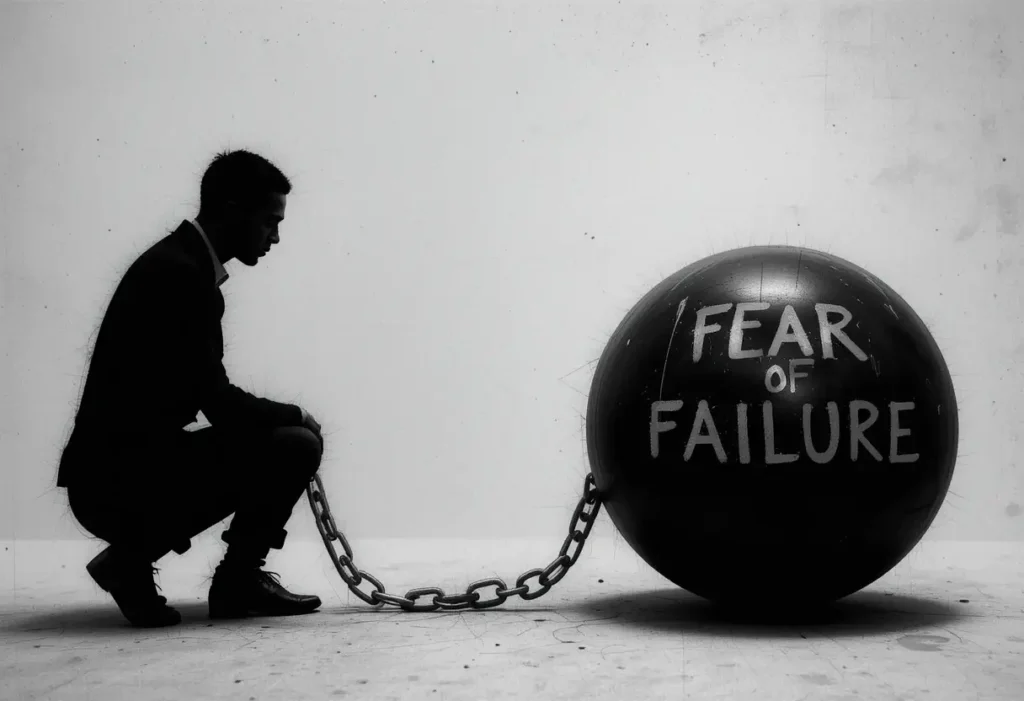Procrastination is the act of delaying or postponing tasks, it is a complex behavior influenced by various psychological factors. The fear of failing is one of the main reasons people procrastinate. Individuals may avoid starting a task due to the anxiety and apprehension associated with not meeting their own or others’ expectations.
Additionally, the lack of motivation or interest in a particular task can lead to procrastination. When individuals do not find a task personally meaningful or rewarding, they may struggle to initiate and complete it in a timely manner. Furthermore, perfectionism, low self-esteem, and impulsivity are psychological factors that can significantly contribute to procrastination.
Recognizing these basic psychological factors is key to addressing and overcoming procrastination.
Key Takeaways
- Procrastination can be caused by fear of failure, lack of motivation, perfectionism, overwhelm, and lack of time management skills.
- Distractions, lack of clear goals, low self-confidence, and poor decision-making can also contribute to procrastination.
- Developing clear goals, improving time management skills, and building self-confidence can help overcome procrastination.
- External accountability and motivation can assist in defeating procrastination.
- Understanding the root causes of procrastination is the first step in addressing and overcoming it.
1. Fear of Failure

Fear of failure can halt progress for even the most ambitious people. I remember a time in college when I had a major project due for my psychology class. The topic was fascinating, but the thought of not meeting my professor’s expectations loomed over me like a dark cloud.
Instead of diving into the research, I found myself scrolling through social media, convincing myself that I needed to “take a break” before starting. The irony is that the more I delayed, the more anxious I became about the impending deadline. This fear of not achieving perfection kept me from even beginning, and I ended up submitting a rushed project that didn’t reflect my true capabilities.
This experience showed me that fear can be both beneficial and harmful. While it can motivate us to strive for excellence, it can also lead to paralysis. I’ve since learned to reframe my perspective on failure.
Instead of viewing it as a definitive end, I now see it as an opportunity for growth. Adopting this mindset has enabled me to approach new challenges with curiosity instead of fear. However, the shadow of fear still creeps in from time to time, reminding me of those moments when procrastination took the wheel.
2. Lack of Motivation
Identifying the Root of the Problem
The lack of motivation was palpable; I would sit at my desk, staring blankly at my computer screen, while my mind wandered to everything else I could be doing instead. It was as if a heavy weight was pressing down on me, making even the simplest tasks feel monumental.
Reigniting Enthusiasm
To combat this lack of motivation, I began to explore what truly excited me. I started setting small, realistic goals that resonated with my interests and passions. By breaking down larger tasks into bite-sized pieces, I found that I could reignite my enthusiasm for work. Celebrating these small victories became a source of motivation in itself.
Sustaining Motivation
It’s fascinating how a little spark can reignite the fire within us, but it requires conscious effort to keep that flame alive.
3. Perfectionism

Perfectionism is a double-edged sword that can lead to both high standards and crippling procrastination. I’ve always prided myself on my attention to detail, but there have been times when this trait morphed into an obsession with perfection. During my first attempt at writing a novel, I found myself endlessly revising the first chapter while neglecting the rest of the story.
Each word felt like it had to be flawless before I could move on, and as a result, I spent months stuck in an endless loop of editing without ever completing a draft. Over time, I’ve come to realize that perfection is an unattainable goal. Embracing imperfection has been liberating; it allows for creativity and exploration without the fear of judgment.
I’ve learned to set deadlines for myself and treat them as non-negotiable. This shift in mindset has helped me produce work that is authentic and true to my voice, rather than paralyzed by the need for perfection. It’s a continuous journey, but acknowledging that progress is more important than perfection has made all the difference.
4. Overwhelm
Feeling overwhelmed is something we all experience at various points in our lives. There was a time when I juggled multiple responsibilities: work, family commitments, and personal projects. It felt like I was drowning in a sea of tasks. The sheer volume of what needed to be done left me paralyzed; instead of tackling one thing at a time, I found myself avoiding everything altogether.
It was during this chaotic period that I realized how easily overwhelm could lead to procrastination. To combat this feeling, I started implementing strategies to break down my tasks into manageable chunks. Creating lists became my lifeline; each item checked off provided a sense of accomplishment that countered the overwhelming nature of my responsibilities.
Additionally, prioritizing tasks based on urgency helped me focus on what truly mattered rather than getting lost in the noise. While overwhelm still creeps in occasionally, these strategies have equipped me with tools to navigate through it more effectively.
5. Lack of Time Management Skills
Time management is an essential skill that many of us struggle with at some point in our lives. I vividly remember my early days in the workforce when deadlines seemed to sneak up on me like uninvited guests. My inability to allocate time effectively led to frantic last-minute efforts that were far from ideal.
I often found myself working late into the night, fueled by caffeine and anxiety, only to realize that better planning could have saved me from such stress. Recognizing this flaw prompted me to seek out resources and techniques for improving my time management skills. I began using digital calendars and task management apps to organize my schedule more effectively.
Setting specific time blocks for different activities allowed me to create a structured routine that minimized procrastination. While it’s still a work in progress, developing these skills has transformed how I approach tasks and deadlines, making me feel more in control of my time.
6. Distractions

In today’s super-connected world, distractions are all over the place and can totally throw us off track. I’ve had countless moments where I sat down to work only to find myself sidetracked by notifications from my phone or the allure of binge-watching a new series on Netflix. It’s almost comical how quickly I can go from being productive to scrolling mindlessly through social media feeds.
These distractions not only waste time but also fragment our attention, making it harder to get back on track once we’ve strayed. To minimize distractions, I’ve adopted strategies such as designating specific times for checking emails and social media instead of letting them disrupt my workflow continuously. Creating a dedicated workspace free from unnecessary clutter has also helped me maintain focus.
By establishing boundaries around my time and environment, I’ve been able to cultivate a more productive atmosphere that minimizes distractions and encourages deep work.
7. Lack of Clear Goals
Without clear goals, it’s easy to drift aimlessly through tasks without any sense of direction or purpose. There was a period in my life when I felt like I was busy all the time but not making any real progress toward anything meaningful. It was frustrating; I would spend hours working on projects without understanding how they fit into my larger aspirations.
This lack of clarity often led to procrastination because if you don’t know where you’re headed, it’s hard to muster the motivation to take action. To address this issue, I began setting SMART goals: Specific, Measurable, Achievable, Relevant, and Time-bound that provided clarity and direction for my efforts. By breaking down larger aspirations into smaller milestones, I could track my progress and celebrate achievements along the way.
This newfound clarity has transformed how I approach tasks; instead of feeling overwhelmed by ambiguity, I now have a roadmap guiding me toward success.
8. Low Self-Confidence
Low self-confidence can be a significant barrier to taking action and pursuing goals. There have been times when self-doubt crept in and made me question my abilities. For instance, when preparing for a presentation at work, I found myself second-guessing every word and fearing judgment from my colleagues.
This lack of confidence led me to procrastinate on preparing until the last minute, which only exacerbated my anxiety and resulted in a less-than-stellar performance. Building self-confidence is an ongoing journey for me. I’ve learned that preparation is key; by investing time in honing my skills and knowledge about a subject, I can approach challenges with greater assurance.
Additionally, surrounding myself with supportive individuals who uplift and encourage me has made a world of difference in boosting my confidence levels. While self-doubt may still rear its head occasionally, I’ve developed strategies to combat it and push through procrastination.
9. Poor Decision-Making

Poor decision-making can lead to indecision and procrastination as we grapple with choices that feel overwhelming or daunting. There was a time when I faced a significant career decision (whether to pursue further education or stay in my current job) and the weight of that choice left me paralyzed with uncertainty. Instead of taking steps toward either option, I found myself putting off any decision altogether, fearing that I’d make the wrong choice.
To improve my decision-making skills, I’ve started employing techniques like pros-and-cons lists and seeking advice from trusted mentors or friends who can provide valuable perspectives. By breaking down decisions into manageable components and considering potential outcomes, I’ve become more confident in making choices without succumbing to procrastination. While not every decision will be perfect, I’ve learned that taking action is often better than remaining stuck in indecision.
10. Lack of Accountability
Accountability can significantly motivate individuals to tackle procrastination. In my experience, having someone else invested in your goals can provide the push needed to take action. There have been times when I’ve set ambitious personal goals but failed to follow through simply because there was no one holding me accountable for my progress.
The absence of external pressure often led me back into familiar patterns of procrastination. To combat this issue, I’ve sought out accountability partners: friends or colleagues who share similar goals or aspirations, and we regularly check in on each other’s progress. This mutual support system has been invaluable; knowing that someone else is tracking my progress encourages me to stay committed and take action even when motivation wanes.
Additionally, sharing my goals publicly has created an added layer of accountability that keeps me focused on achieving what I’ve set out to do. In conclusion, procrastination is a multifaceted issue influenced by various factors such as fear of failure, lack of motivation, perfectionism, overwhelm, poor time management skills, distractions, unclear goals, low self-confidence, poor decision-making abilities, and lack of accountability. Recognizing these underlying causes has been instrumental in helping me develop strategies to combat procrastination effectively.
While it’s an ongoing journey filled with ups and downs, understanding these reasons has empowered me to take control of my actions and move forward with purpose.
FAQs
What is procrastination?
Procrastination is the act of delaying or postponing tasks or activities, often to the point of causing negative consequences.
What are some common reasons for procrastination?
Some common reasons for procrastination include fear of failure, lack of motivation, perfectionism, overwhelm, lack of time management skills, distractions, lack of clear goals, low self-confidence, poor decision-making, and lack of accountability.
How does fear of failure contribute to procrastination?
Fear of failure can lead to procrastination as individuals may avoid taking action on tasks or goals in order to avoid the possibility of not meeting expectations or facing criticism.
How does lack of motivation contribute to procrastination?
Lack of motivation can lead to procrastination as individuals may struggle to find the drive or enthusiasm to start or complete tasks, leading to avoidance and delay.
How does perfectionism contribute to procrastination?
Perfectionism can contribute to procrastination as individuals may feel overwhelmed by the pressure to achieve flawless results, leading to avoidance of starting or completing tasks.
How does overwhelm contribute to procrastination?
Feeling overwhelmed by the sheer volume or complexity of tasks can lead to procrastination as individuals may struggle to prioritize and take action, leading to avoidance and delay.
How do distractions contribute to procrastination?
Distractions, such as social media, notifications, or interruptions, can lead to procrastination as individuals may struggle to maintain focus and productivity, leading to avoidance of important tasks.
How does lack of clear goals contribute to procrastination?
Lack of clear goals can contribute to procrastination as individuals may struggle to identify and prioritize tasks, leading to uncertainty and avoidance of taking action.
How does low self-confidence contribute to procrastination?
Low self-confidence can lead to procrastination as individuals may doubt their abilities to successfully complete tasks, leading to avoidance and delay.
How does poor decision-making contribute to procrastination?
Poor decision-making can contribute to procrastination as individuals may struggle to make choices or prioritize tasks effectively, leading to avoidance and delay.
How does lack of accountability contribute to procrastination?
Lack of accountability can lead to procrastination as individuals may not feel a sense of responsibility or consequence for delaying tasks, leading to avoidance and delay.

